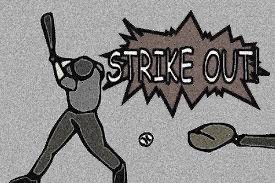
Parmar v Sidhu 2022 BCSC 1359 reviewed the law relating to striking out claims, pleadings, petitions or other documents.
Rule 9-5(1) states:
At any stage of a proceeding, the court may order to be struck out or amended the whole or any part of a pleading, petition or other document on the ground that
(a) it discloses no reasonable claim or defence, as the case may be,
(b) it is unnecessary, scandalous, frivolous or vexatious,(c) it may prejudice, embarrass or delay the fair trial or hearing of the proceeding, or
(d) it is otherwise an abuse of the process of the court,
…
Under subrule 9-5(2), no evidence is admissible on an application under subrule 9-5(1)(a).
It is well established that the test for determining whether to strike out a claim or not is set out in R. v. Imperial Tobacco Canada Ltd., 2011 SCC 42 at para. 17 in which the Court was applying the predecessor to Rule 9-5(1):
[17] The parties agree on the test applicable on a motion to strike for not disclosing a reasonable cause of action under r. 19(24)(a) of the B.C. Supreme Court Rules. This Court has reiterated the test on many occasions. A claim will only be struck if it is plain and obvious, assuming the facts pleaded to be true, that the pleading discloses no reasonable cause of action: Odhavji Estate v. Woodhouse, 2003 SCC 69, at para. 15; Hunt v. Carey Canada Inc., [1990] 2 S.C.R. 959, at p. 980. Another way of putting the test is that the claim has no reasonable prospect of success. Where a reasonable prospect of success exists, the matter should be allowed to proceed to trial: see, generally, Syl Apps Secure Treatment Centre v. B.D., 2007 SCC 38; Odhavhi Estate; Hunt; Attorney General of Canada v. Inuit Tapirisat of Canada, [1980] 2 S.C.R. 735.
The next issue to be considered is whether allegations based on assumptions and speculation, or allegations that are manifestly incapable of being proven, can be taken as true.
Operation Dismantle Inc. v. The Queen, [1985] 1 S.C.R. 441, 1985 CanLII 74 (S.C.C.), a case which involved an attempt to stop the Canadian government from testing cruise missiles, addressed the issue at para. 27:
We are not, in my opinion, required by the principle enunciated in Inuit Tapirisat, supra, to take as true the appellants’ allegations concerning the possible consequences of the testing of the cruise missile. The rule that the material facts in a statement of claim must be taken as true for the purpose of determining whether it discloses a reasonable cause of action does not require that allegations based on assumptions and speculations be taken as true. The very nature of such an allegation is that it cannot be proven to be true by the adduction of evidence. It would, therefore, be improper to accept that such an allegation is true. No violence is done to the rule where allegations, incapable of proof, are not taken as proven.
In more simple terms, the Court was saying that allegations of fact based upon assumptions and speculations cannot be taken as true.
Later, at para 78, the Court in Operation Dismantle stated:
[78] It has been suggested, however, that the plaintiffs’ claim should be struck out because some of the allegations contained in it are not matters of fact but matters of opinion and that matters of opinion, being to some extent speculative, do not fall within the principle that the allegations of fact in the statement of claim must be taken as proved. I cannot accept this proposition since it appears to me to imply that a matter of opinion is not subject to proof. What we are concerned with for purposes of the application of the principle is, it seems to me, “evidentiary” facts. These may be either real or intangible. Real facts are susceptible of proof by direct evidence. Intangible facts, on the other hand, may be proved by inference from real facts or through the testimony of experts. Intangible facts are frequently the subject of opinion.
…
The Court of Appeal, in my opinion, later clarified this issue in H.M.B. Holdings Limited v. Replay Resorts Inc., 2021 BCCA 142 [H.M.B.] at para. 54:
[54] The respondents submit that some of the facts as pleaded are incapable of proof, and that the pleadings cannot be taken as true. As noted above, the test on whether to strike a claim includes an assumption that the facts pleaded by the plaintiff are to be taken as true. This, however, is not an absolute rule – there are exceptions. The rule does not require that allegations based on assumptions and speculation, or allegations that are “manifestly incapable of being proven”, be taken as true: Operation Dismantle at p. 455; Imperial Tobacco at para. 22.




